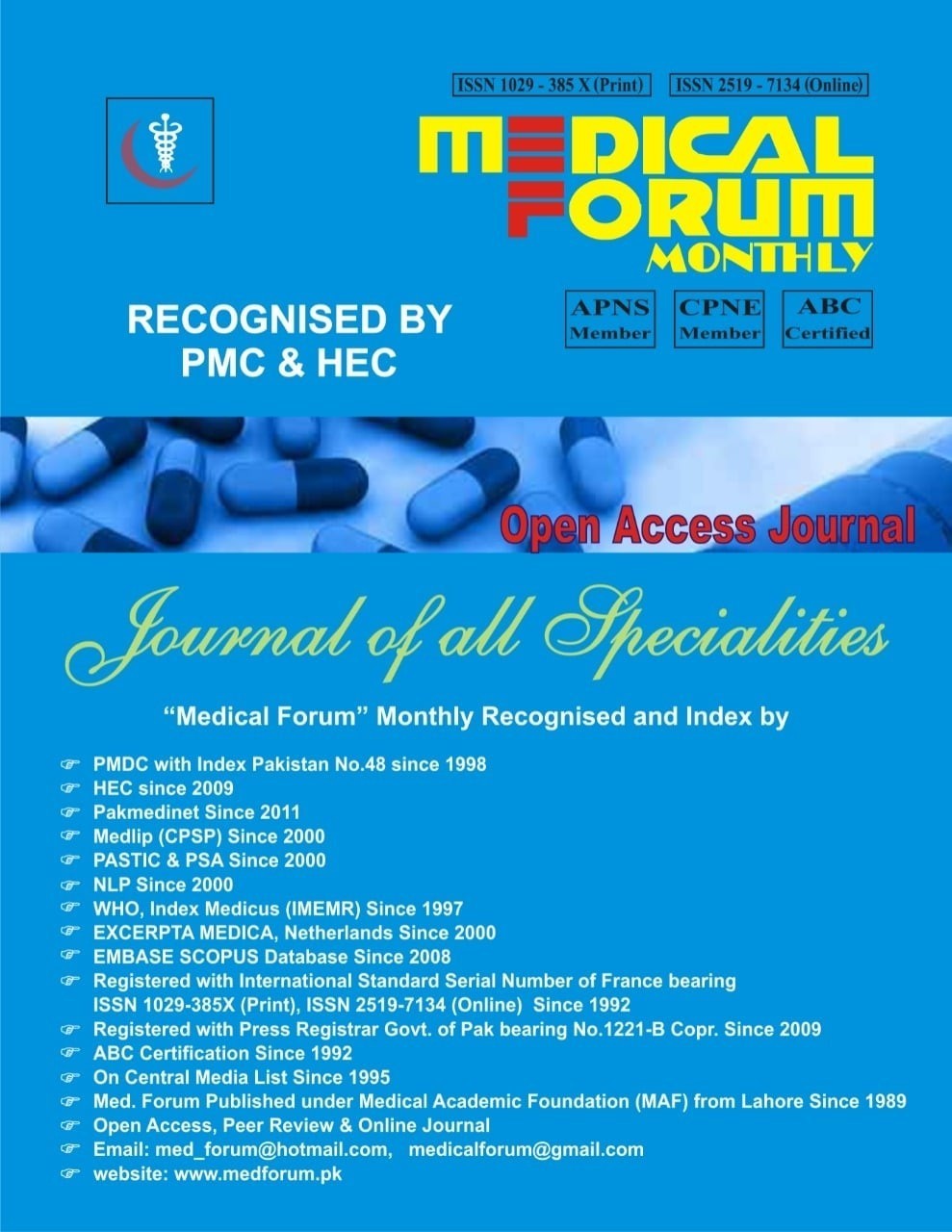
2.Impact of Seasonal Variation on the Frequency of Eclampsia in Pregnant Women Having Gestational Amenorrhea More Than Twenty Weeks
Romana Ramzan1, Afshan Sultana3, Sajida Yousfani1, Najma Bano Shaikh1, Nisa Mohsin3 and Muhammad Nadeem Chohan2
ABSTRACT
Objective: To assess the impact of seasonal variation on the frequency of eclampsia in pregnant women having gestational amenorrhea more than 20 weeks.
Study Design: Cross sectional study
Place and Duration of Study: This study was conducted at the Obstetrics and Gynecology Department LUMHS Jamshoro from 28th October 2016 to 28th October 2017.
Materials and Methods: A total of 130 primigravida pregnant women, >20 weeks of gestational age were included in this study. Diagnosis of eclampsia was made by consultant obstetrician and the patient was managed by her under her direct supervision. Frequencies of eclampsia in pregnant women were noted in various seasons like summer, autumn, winter and spring.
Results:-Women average age was 24.98±2.56 years. Frequency of eclampsia in the pregnant women having gestational amenorrhea was observed in 2.23% (130/5831) women. Incidence of eclampsia was 26.15% (34/5831) in spring season, 23.08% (38/5831) in summer season and 16.92% (22/5831) in autumn season, 33.8% (44/5831) in winter season but statistically there was no significant difference among different seasons (p=0.499). Similarly incidence of eclampsia was also not significant between monsoon and dry season (4% vs. 3.8%, p= 0.96).
Conclusion: The results of current study revealed no significant impact of seasonal changes on eclampsia. As eclampsia is very common in pregnant women, efforts should be taken to understand its aetiologies as possible prevention may reduce the patient burden and feto maternal morbidity/mortality.
Key Words: Eclampsia, gestational amenorrhea, seasonal variation, winter, summer
Citation of article: Ramzan R, Sultana A, Yousfani S, Shaikh NB, Mohsin N, Chohan MN. Impact of Seasonal Variation on the Frequency of Eclampsia in Pregnant Women Having Gestational Amenorrhea More Than Twenty Weeks. Med Forum 2021;32(10):7-10.
